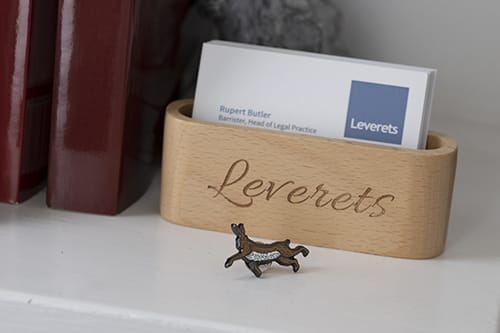When Camila Batmanghelidjh passed away in January, it forced people to finally take notice of the appalling way she and Kids Company, the charity she founded, was treated by the government, the media, and The Charity Commission.
Whilst we remember her grace, and determination to continue the fight for social justice despite the sustained smear campaign to which she was subjected, here at Leverets we’re also reflecting on the lessons to be learned, having represented Camila in her successful defence against the Official Receiver’s misconceived proceedings. In particular, we must learn how charities can protect themselves from the type of scrutiny and, frankly, unfair treatment from the very organs of the state, including the Charity Commission, whose stated aim is to “give charities the understanding and tools they need to succeed.”
Background
In February 2022, the Charity Commission published its inquiry ‘Keeping Kids Company’. It disappointingly, although somewhat unsurprisingly, reignited the false narrative that the charity failed due to financial mismanagement by its trustees. In so doing, it also contradicted the judgment of Mrs Justice Falk, which had previously found that neither Camilla Batmanghelidjh nor the trustees were guilty of any wrongdoing, dishonesty, bad faith, or inappropriate personal gain and that the charity failed due to a series of broken promises by government ministers to give it funding as well as being subject to bogus allegations of safeguarding failures. Strikingly, whereas Mrs. Justice Falk took painstaking care to scrutinise the evidence presented over a 12-week trial, the Charity Commission did no such thing and its processes were entirely opaque.
Mrs Justice Falk, … had previously found that neither Camilla Batmanghelidjh nor the trustees were guilty of any wrongdoing, dishonesty, bad faith, or inappropriate personal gain and that the charity failed due to a series of broken promises by government ministers to give it funding as well as being subject to bogus allegations of safeguarding failures.
Camila challenged the regulators findings, and later that year a High Court Judge, Mr Justice Charles Bourne, granted permission for a judicial review of the Charity Commission’s Inquiry. He ruled there was an “arguable case”.
It’s crucial to the future health of the charity sector that the manner in which the Charity Commission carries out its inquiries is, itself, properly investigated. It’s been heavily criticised for inadequate processes and a lack of transparency, as well as it’s oppressive drive to professionalise the sector and heavy-handed scrutiny of the activities of charity workers and volunteers. All of this serves to erode public trust, rather than improve performance for the benefit of all, drives away volunteers from the Third Sector (a vital pillar in our society) and increases costs, thereby depleting the provision of front-line services.
Camila wanted to help every child in need and operated a policy of never turning anyone away, which is why Kids Company operated at the financial margins. Although Camila’s policy is consistent with the teachings of every mainstream religion (she did not align with any religion herself), ultimately in our secular world a line has to be drawn somewhere. So, what lessons can charities take away from this tragedy?
Lessons charities can learn from the treatment of Kids Company:
Keep the Charity Commission at arm’s length would be my best advice, but failing that:
- Board and Trustees: Keep the trustees and the board fresh, rotate people and roles and try not to let the charity become associated with a single person – get a spread of skills on the board.
- Financial Management: Always think about the adequacy of your reserves to tide you over in stormy weather, robustly ring fence funds for specific projects, maintain a long-term view, don’t rely too heavily on a single income stream (especially grants), diversify funding as much as possible, and always keep immaculate records.
- Culture: Don’t become overly ambitious, always be pragmatic about just how far you can stretch your provision of services and of course, look after your volunteers.
- Protection: Take out comprehensive Directors’ and Officers’ insurance, and always seek out experienced professionals for support and advice.
As a practice with a specialist insolvency team, it’s also worth reviewing this case as a model in minimising insolvency risk.
The key learning needs to be that charities are not businesses, and therefore should not be judged by the same standards. Charities are non-profit, their aims and values belong to the core services they are providing and therefore require different judgment and skills. The Official Receiver and the Charity Commission want a governance model that tries to treat charities as businesses, and while charities must stand on their own two feet, happily the failure of the Official Receiver’s claim stands as a victory for the common-sense distinction.
If you’re a charity struggling with whimsical changes to central funding and grants and struggling to make your income streams work – don’t turn to the Charity Commission for help. Seek professional guidance from experienced charity sector lawyers, accountants, and auditors.






